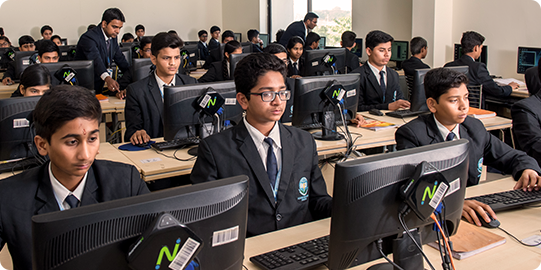Do you ever feel that your study techniques are lacking? A lot of students are aware that their primary school study techniques do not work well in high school. Given the differences between primary and high school, it makes sense. Exams are more significant, reading is more demanding, and coursework is much more demanding due to the lengthier classes and exams. Academic world school, one of the best schools in Chhattisgarh suggests that, You must develop your study skills if you are unable to handle the pressure. It’s a good thing that numerous active study techniques have been found to work well in higher classes.
You can learn course material more quickly by incorporating the below-listed tips into your regular study routine. Learn which ones work best for you by experimenting with them.
Here are a few wise study suggestions.
- brief periods of time spent studying
Long study sessions with lots of information hinder your brain’s ability to process information. Think about setting aside 30 minutes before or after work to study. You can prevent all-nighters by making advance plans, reading, and setting up a schedule for your study time.
- Get into the zone
Locate the ideal study area for you and gather all the required materials. The time spent in preparation helps the brain in learning all the relevant ideas. Limit your exposure to other distractions as well. If you must listen to music, select melodic music without lyrics, put your phone away, and stay off social media.
- Sleep well and work out
Academic world school, one of the best schools in Chhattisgarh says that, You can learn more effectively when you’re alert, well-fed, and rested, and even more effectively after exercise. Make sure you’ve consumed nourishing foods like fish, nuts, berries, and yoghurt in order to give your brain a boost. Between 30-minute sessions, it’s a smart idea to hydrate and get some exercise.
- Make flashcards
When you write something down after reading or hearing it, your brain is better able to process the information. You will need to put away the highlighter and create flashcards with the essential information. Because it uses the techniques of increasing intervals and spaced repetition, the Leitner System is also appropriate for academic purposes.
- Set goals
Make a list of your study goals and cross each one off as you achieve it. It will inspire you, give you a sense of accomplishment, make you feel in control, lessen any study stress, and motivate you.

- Examine yourself
Academic world school, one of the best schools in Chhattisgarh, suggests students to take Practice exams as it is a great way to gauge your proficiency and identify areas for improvement. Online resources include some great templates that can help with structure. Any complex concepts you come across should be noted, and you should always test yourself later on for a challenge.
- Try to convey it to others
Those who learn a subject and instruct others in it do so more logically than those who learn a subject for themselves. Peer tutoring has been shown to improve academic achievement in a study carried out in the United States, where it was discovered that students who took part in peer learning performed noticeably better on a reading test than students who did not.
- Read aloud and take note of
Whether you’re studying alone or with a friend or family member, read your flashcards and summaries out loud. Try to remember the contents of the flashcards while closing your eyes to help further solidify your main points and arguments. Speaking out loud while reading also aids in memory retention.
- 80% Recite, 20% Read
Your brain becomes fatigued and occasionally loses focus if you study nonstop for an entire day. The best schools in Chhattisgarh ask students to try reading a concept, closing the book, asking yourself a question, and then attempting to respond to it in your own words without opening the book. 20% reading and 80% memorization are the ideal smart study tips; this will make your concepts clearer.
- Make timetable
Additionally, the majority of students consistently abide by this advice. There is no more sage advice than to plan. Plan your week, your day, and even your last hour of study time. When your brain is aware of exactly what needs to be done and for how long, it becomes more productive. Try a week of experimentation with various schedules to see which works best for you. Which schedule or plan is increasing your productivity? Keep to your schedule to see the outcome.
Conclusion
The consistency of your studies is crucial. Which would you prefer to memorise: a large amount of information at the end of the week, or a small amount of information each day? Daily revision is more likely to retain information longer. Additionally, you have time to review, which is an essential component of efficient studying.
These methods will improve your performance and make studying something to look forward to. In order to significantly reduce the time needed to learn things, use these wise study tips.
Find out more about the school and the admission process by contacting us at:
Phone: 91-9111-299-900,
+91-9111-399-900
Email us at:
academicworldschool@gmail.com